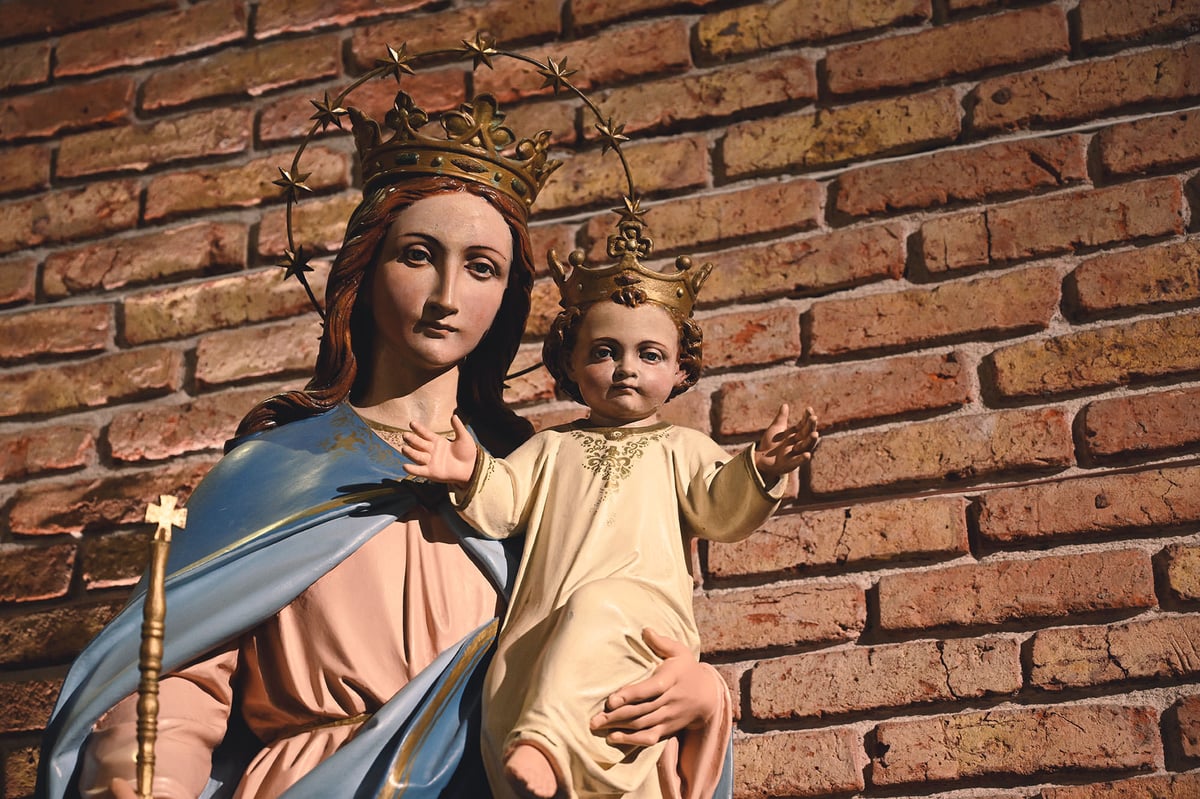A1. She brought the Savior into the World
Mary said Yes! In Luke 1:26-35, The Angel Gabriel appeared to the young Mary and said that she would conceive a child and He will be called “The Son of the Most High.” Mary had free will, like all of us; she could have said no. She could have said, “Find someone else.” Instead, as written in Luke 1:38, Mary answered, “Behold, I am the handmaid of the Lord; let it be to me according to your word.” By her consent and by her free will, Mary united her will to the will of the Father and brought the salvation of the human race into the world in the person of Jesus Christ. Without Jesus Christ, there would be no salvation for humanity. Mary carried the God-Man, the creator, in her womb. She agreed to provide Him with her flesh and blood, carried Him for nine months, and nurtured Him throughout his life.
A2. “Hail, full of Grace, the Lord is with you!”
When the Angel Gabriel came to Mary, he greeted her with a royal greeting. Luke 1:28 recounts Gabriel greeting Mary by proclaiming, “Hail, full of Grace, the Lord is with you!” The Greek word for Hail that is used here is a word that is used to address royalty. Think of it: an Angel, being far superior to a human, greets a young girl with such respect and awe. This would imply that Mary is no ordinary human being. God created her and prepared her to carry His son, to be a living tabernacle of the Lord.
“Full of Grace.” That is how Gabriel addressed Mary in Luke 1:38 before she even agreed to be the Mother of God. This would imply that she was full of Grace (God’s own life and love) even before she had Jesus in her womb. Like the pure and untouchable Ark of the Covenant in the Old Testament that held symbols of God, Mary was born pure and full of grace in order to carry the Word of God made flesh, Jesus Christ.


